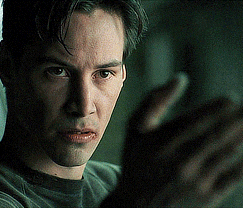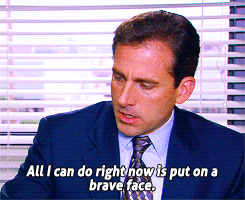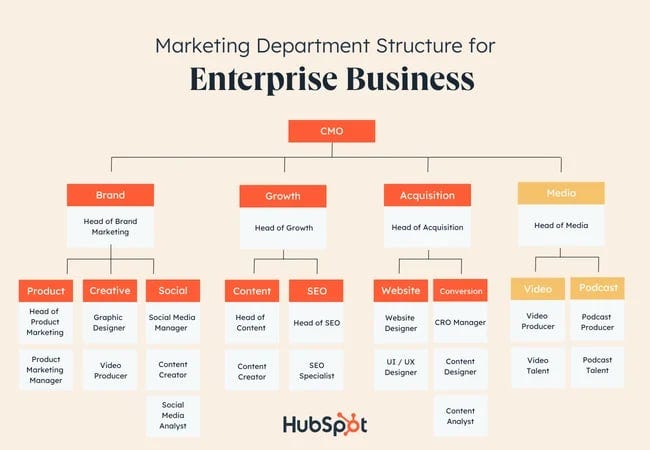Connecting Dots and Making Decisions: The Importance of Founder Mode
How I think about Founder Mode, why it's important and how it's NOT really about "hustle culture." (#82)
Someone recently asked me what I thought about Paul Graham’s essay, “Founder Mode.” Here we go... 😀
Founders are crazy.
They commit wholly to their pursuit, often sacrificing their health and personal lives in the process. The math doesn’t make much sense either—financially most people are better off getting a “regular job” with a consistent salary versus buying a lottery ticket to become wealthy.
Side bar: This description does not include all founder types. Some are building small businesses or side hustles. Some eschew “unicorn chasing” as a fantasy and the VC capital that usually comes with it. Totally fair.
Founders are crazy.
To a tee founders are obsessive egomaniacs. I’m sure there are exceptions, but if you believe you’re the one to build a successful business, you have a healthy ego. You believe you’re special (whether you admit it to yourself or not). And you’ll have to obsess over getting there.
Side bar: This description includes all founder types, including those building lifestyle businesses or those that are anti-VC/hustle culture. Trust me, these folks—especially aggressive “thought leaders” and “influencers”—are hustling like maniacs. They obsess over going viral, while giving the impression it’s effortless. They obsess over monetization (more courses, anyone?) They might not want to work 12 hour days (totally get it), or run massive teams (I definitely get that!) but they’re obsessive egomaniacs just the same. Not that there’s anything wrong with that!
Founders are crazy.
They will always care more than everyone else, including employees and investors. For founders, it’s personal. For everyone else, it’s transactional.
Founders will persevere beyond what everyone expects, with pennies left in the bank account and one more Hail Mary throw to take. Founders go for it. They are insanely competitive.
Side bar: This description includes all founder types. Don’t tell me influencers or “4-hour work week” gurus aren’t competitive. They are. They want to win. Their definition of winning may be different from a VC-funded founder, but all the same—they wanna win.
The best founders are like elite athletes. Steph Curry takes 500 shots every day. Over his 15 year NBA career he’s taken more than 2.5 million shots! That’s nuts. But that’s what it takes to be the best and win.
It also takes a team. Steph Curry has never won a single basketball game on his own. He’s taken many winning shots, and “put the team on his back” without question. But there was always a team.
Founder Mode isn’t suggesting startups succeed with a team of 1. You still need a team. It all comes down to how you manage them.
How Big Companies Break Down
It’s helpful to look at how big companies struggle under the weight of their people and hierarchy.
As companies grow, they divide into departments and levels. The more departments and levels, the more isolated everyone becomes.
Everyone understands this shift. As Paul Graham writes (paraphrasing), the prevailing advice is that you hire great people, empower them to run things and shrink your role, because you can’t possibly handle everything.
Unfortunately, we’ve seen the challenges with this:
Fiefdom building is common in big companies. Whoever has the biggest budget often has the most power, so each department or group tries to secure maximum budget to hire the most people and accrue power.
Information isn’t shared easily between departments (or even within a department). Some of this is accidental or unintentional, but some of it is 100% on purpose. It goes back to fiefdom building, control, power and levelling up. If I’m crushing it in Sales, I want to get all the credit, so I become more exclusionary in my approach (except with the CEO/founder because I want them to know how awesome I am!) If I’m shitting the bed in Sales, I hide it and try to keep that fact to myself.
With less information sharing and less cohesion, it becomes much easier to blame someone else:
The VP Product says, “It’s not my fault we’re delayed, Engineering is slow.”
The VP Engineering claims, “It’s not my fault we’re delayed, Product keeps changing the requirements.”
The VP Customer Success laments, “It’s not my fault customers are churning, Product & Engineering can’t ship anything new.”
The VP Sales cries, “It’s not my fault I can’t hit my quota, no one else can do anything right!”
It’s funny, but it’s not. 🤣 😭
Things grind to a halt when people aren’t capable of connecting dots and making decisions. But no one has enough information or visibility to do either. Companies try to drive efficiency the same way factories operate (specialized roles/responsibilities, passing effortlessly from one step to another), but companies don’t work that way. Too many people. Too many emotions.
No One Wants to Make Any Decisions
As companies scale, decisions become harder. There are more levels of bureaucracy. Responsibilities become unclear. People want to pass the buck, but take the praise.
Of course there are many people within big companies that want to take action, make decisions and genuinely lead. They’re often stymied by “the machine”.
Here’s Hubspot’s recommendation for an enterprise Marketing Department, which shows the inevitable complexity:
Each level is encouraged to empower the level below, because that’s what “good management” means. But taken to its natural conclusion and most decisions are made at the bottom? That can’t be right. Flip that around and assume that the CMO (who reports to the CEO) makes every decision, and everyone else is mindlessly executing work. That makes no sense either.
So how are decisions made? Who makes them? When?
This uncertainty is what leads to a high volume of meetings with lots of people. Suddenly every meeting has 10 people in it because everyone needs to “travel with the information” and give the impression that decisions are made democratically (even if they’re not).
Perhaps everyone wants to make decisions, but too few people have the courage to do so. No one wants to be wrong. You don’t get promoted if you’re wrong. As a result, decisions aren’t made. Timelines stretch. Project scopes balloon.
Have you heard the phrase, “Showing up is half the battle?”
It’s not.
I suppose if you don’t show up there’s no chance of winning, but as companies grow, there are more people in “show up mode” than “I’ll do actual work, try hard and make decisions” mode. The latter is what’s needed.
Career Pathing Kills Progress
Startups need individual contributors. At scale it becomes harder to execute without some form of people management. So companies hire middle managers and others that are less inclined to do work, and more inclined to manage people. I get it, managing people is work, it’s just not the type of work that generates the most value.
Once you have people managers, the individual contributors working for them want to become them. Everyone wants to “move up the ladder” because that equates to more money and power. But a company full of people managers won’t get much work done.
Shopify introduced a dual career path where you can level up as an individual contributor or a people manager. Here’s a good deep dive on the topic. I love this, because if people management is the only way to level up, you’ll end up (even unintentionally) hiring exclusively people that want to do that work.
Career pathing from individual contributor to people management kills a lot of companies. It doesn’t reward execution and perfecting a craft; instead it rewards your ability to hold 1:1 meetings. Incidentally, a lot of individual contributors are terrible people managers, but they want to make more money and get ahead just as much as the next person, so they have no choice.
How many years should it be before your next title boost? 1? 2? 3? Founders don’t care much about titles, because there’s nowhere for them to go, no one is taking their job (until the board decides to fire them and hire a new CEO), and they’re not looking for “their next gig”. But most employees care (and rightfully so).
It’s 100% natural to want progression. The challenge is whether it leads to the company being more productive and successful or not.
Founders Assume Too Much
Please don’t read this and think, “Ben is blaming everything on employees.” That’s 100% not the case. In fact, the blame is always with the founders. Every single decision made within a company is the responsibility of the founders (whether they made the decision or not).
Founders make a number of mistakes when hiring:
They assume employees will care as much as they do. Or that they’ll be able to motivate their employees sufficiently. But why should employees care as much? It’s not logical. Some might, but they’re rare. And that’s completely fair.
They assume people with a big title at a big company can execute effectively in a startup. This is often very, very wrong. People who are in a people management role often struggle to become individual contributors.
They assume past success equals future success. I wish this were true, but there’s no guarantee. There are too many variables to draw this conclusion. Plus, it’s always tough to know what someone actually did before (even if their company was successful). Companies that succeed massively provide employees with a halo effect. If you were part of Shopify when it went public, you must be a superstar. Right? I’ve heard Google’s recruiting is really tough, so if you worked there you must be a genius. Right?
They hide reality underneath the hype of beautifully crafted values. These values are meant to motivate and align people. Big companies do this too. “Honesty.” “Transparency.” “Perseverance.” “Balance.” And so forth. I’m not suggesting these are all complete bullshit, but maybe 50% bullshit? Most founders don’t have the courage to express what they’re really looking for in people. They’ve been told it’s wrong to demand certain things, especially as a company scales. I get it, but this does everyone a disservice and sets everyone up to fail.
Founder Mode is Not the Same as Hustle Culture
Founders want employees to work hard. That should go without saying, but perhaps it needs to be said. That’s not the same as toxic hustle culture meant to grind people to a pulp.
Founder Mode is about control. It’s about recapturing what made the company successful in the first place, which is intrinsically connected to the founder and their abilities to execute. Working hard is a byproduct.
If everything that happens within a company is ultimately the responsibility of the founder…
Maybe the founder should make more of the decisions; and,
Maybe the founder should do more of the work and not delegate quite as much.
That’s it. That’s Founder Mode.
Founders started their companies with a mission—a drive to accomplish something. Founders started their companies as individual contributors and had to be exceptional, otherwise they wouldn’t have made any real progress.
Most founders, even when they’ve “won” don’t think that they’ve won (or don’t care about others declaring victory). They’re hyper-competitive and determined to keep going. Early on they knew everything going on, had their hands in most things and were able to see the playing field differently from everyone else. That allowed them to connect dots better than anyone, and forced them to make decisions quickly.
Connecting dots is not an easy skill. It requires being able to constantly jump between a 20,000 foot strategic level and a 2 foot execution level. It’s about seeing around corners, identifying trends, placing bets, knowing people, and jumping on opportunity. It’s about guessing as much as it is about knowing, but having the confidence to guess, jump and literally build the plane on the way down.
Taking ownership & responsibility is also not easy. Founders either do this constantly (if they want any chance of succeeding) or they fade away. Founder Mode is about taking responsibility and acting on it. It’s about owning things, not simply managing people and empowering them to own things. Founders don’t always know best, but it’s still their company.
Founder Mode in Action
I’ve seen Founder Mode in action, albeit not in a big company (although Marc Benioff was pretty hands on when I was at Salesforce). Turns out, even when you hit 20 or 30 employees, silos start to form and the CEO/founder begins to abstract themselves out of day to day activities. I’ve lived this a few times.
While working with a 100+ person company (not as an employee), I saw the founder empower everyone else, only to see things slow down significantly. The company lost its edge. Things bogged down in a similar (albeit smaller) fashion to a 10,000 person company. I think this happens to every startup as it grows. The company raises capital and decides that the solution to every problem is hiring more people. Suddenly the startup has a bunch of specialists (as opposed to “generalist-specialists” which I prefer) all seemingly doing stuff (keeping busy) but not driving real outcomes. Politics, egos and fiefdoms emerge. The founder is spending more time trying to develop a multi-year strategy, raise more capital and create the right culture, while day-to-day operations grind to a near halt.
Founders can’t do everything on their own. While control and active, execution-focused leadership may surface to the top, companies still need people doing great work. That means setting clearer expectations, faster. It’s about increasing accountability and holding people to it. Realistically it requires a lot less sensitivity and a hell of a lot more intensity.
Once founders realize they can still do stuff in the weeds and make active decisions on what seem like minute details they accomplish more because it’s what they know. It’s leading by example, not leading by talking, organization or cajoling.
I’ve always believed we need more founders. ❤️
Founders have a level of ambition and courage that’s rare. We could use more ambition and courage in the world, focused on solving big problems that matter. Founder Mode is a recognition that as companies scale in the traditional approach, the very thing that made founders special becomes obsolete, because founders are expected to operate differently. But founders were meant to:
Lead execution, not just manage people.
Dictate things, not delegate everything.
Lean in, not lean back and let others do the work for them.
Founders are crazy. And that’s a good thing.











Founder Mode is micromanagement
> I get it, managing people is work, it’s just not the type of work that generates the most value.
Isn't it true that managers are compensated more than ICs (other things being equal). And does that not imply they generate more value?